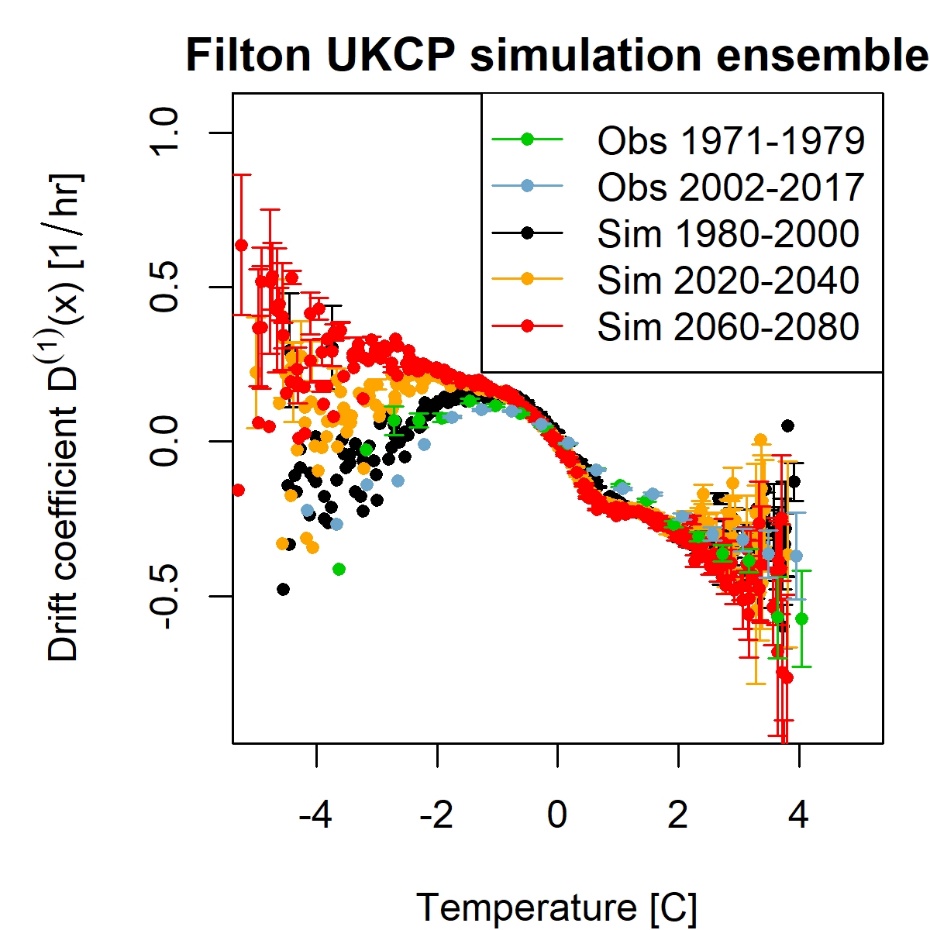Drift and Diffusion Functions of Historical Time Series and UKCP18 Convection-Permitting Model Outputs for Bristol and Filton
Kwok P Chun, Luminita Danaila and Manuel Fossa
As global temperatures continue to rise and affect atmospheric dynamics, there is a growing need to develop methods for investigating the temporal evolution of climate fields. These methods are useful to quantify both short- and long-term changes, as a function of geographical locations, seasons, and large-scale atmospheric conditions.
Using the Fokker-Planck equation, we investigate the deterministic drift and diffusion processes of measured and modelled time series. Specifically, we derive the drift and diffusion functions of
1) Bristol and Filton’s historical hourly temperature data.
2) the corresponding UK convective permitting model outputs for the RCP 8.5 climate projection scenarios.
The drift function varies linearly for the two data types, although the exact function forms differ for different periods. Moreover, the diffusion function depends more on the investigated geographical locations and the period. These results suggest the potential role of turbulent statistics at all scales.
Furthermore, we will propose using the stochastic differential equation approach to capture the complexity of temperature dynamics and study the effect of other factors, such as atmospheric circulation patterns. We aim to (i) provide insight into the relationship between drift, diffusion, and turbulence in temperature dynamics and (ii) lay the groundwork for further analysis of convection-permitting model simulations.

